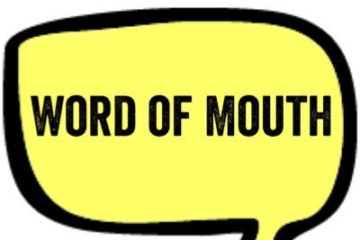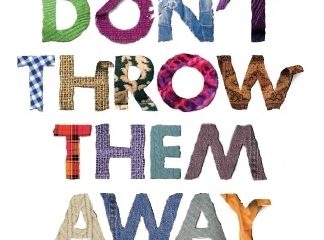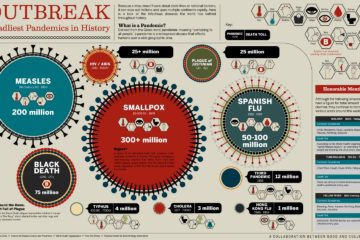Jonathan sent me an email about how our food is grown. It definitely gave me food for thought.
Hi
Some recent emails prompt me to raise a related topic – we may be vegan but are our vittles? ……we may be environmentally aware but is the food we eat environmentally friendly?
The point is that if our food is ‘organic’ it has most likely been grown with animal manures – a product of the slaughterhouse industry; otherwise it will have been grown with artificial fertilisers, pesticides and other chemical nasties.. Both methods are harmful to the environment. Even vegans often fail to appreciate this; we have so many things to ponder these days!
There is however an alternative….. vegan-organic (also known as stockfree organic), which as you will appreciate is an animal free method of growing food.
Peter said: –
Below is the text of an article by Amanda Rofe, which just appeared in the Vegan magazine.
Comments on this dilemma appreciated; supporting the Vegan – Organic Network will certainly hasten the day when truly animal and chemical free food is available to all.
www.veganorganic.net
This movement is not just Europe-based by the way, animal free methods are successful on every continent.Peter
Food is usually grown using chemicals or animal manure and animal by-products. By and large most of us have had to put up with this. Is there an alternative? Absolutely there is! Read on and be prepared to get involved because food production is a crucial global issue, and your help is needed. Without doubt, the way our food is actually grown is a vitally important animal rights concern too. Lets all participate in returning the planet to its full glory where wild flowers, trees and animals once more make it into a living earth free from the destruction of animal farming.
Farming Disaster
Animal farming has dominated global food production and is rapidly expanding. It is one of the world’s worst offenders when it comes to damaging the environment causing pollution, land degradation, excessive use of water and energy resources, deforestation, loss of biodiversity, the displacement of food from poorer countries – where people are malnourished – to the rich west, and global warming. It is morally wrong to slaughter billions of animals for food and it is an unsustainable system to feed an increasing world population. Even traditional ‘organic’ animal farming would not be able to meet the demand.
The Way Forward
We know that a plant-based diet is a healthy way to live. Vegans have lower incidence of many diseases and meat and dairy products are at the centre of an obesity epidemic. However, we also want a healthy planet. One way of producing food that involves no animal products and which is also the ’greenest’, most sustainable and carbon neutral is Stockfree-Organic (or vegan-organic) which avoids land degradation, deforestation and pollution and is climate-friendly to boot!
Stockfree-Organic is an ethical and ecological solution for the global problems we face today. There are many far reaching benefits to this system way beyond simply excluding animal products, which is great in itself, and which could transform the way we produce our food. Essentially it is a plant-based sustainable system which avoids the use of poisonous chemicals and which encourages wildlife and biodiversity. Great care is taken not to impact on the wider environment, and emphasis is placed on obtaining supplies and selling produce as locally as possible.
Stockfree Organic Symbol
The Stockfree-Organic Symbol is for commercial growers and is an ethical standard for food production devised by the Vegan-Organic Network. Inspection and certification is undertaken by Soil Association Certification and producers can hold the Soil Association and the Stockfree-Organic Symbol at the same time.
Increasing numbers of Stockfree-Organic growers and farmers are now established in the UK and abroad; the Stockfree Organic symbol has recently been set up in the USA. Techniques are tried and tested and economically viable. It is important to remember that animal manures and by-products are not required to maintain soil fertility and grow healthy plants even in an ‘organic’ system!
What Can You Do?
It is crucial that we all do something to promote Stockfree-Organic, in order to get food grown using animal-free methods into the shops, for the sake of farm animals and for our global future. Join the Vegan Organic Network (VON). The more members and support VON gets, the greater the impact.
Ask food producers if they are Stockfree-Organic or would consider changing to it (those with Soil Association certification are more likely to) and ask shops if they would stock this type of produce. The number of well-established businesses supplying Stockfree Organic produce is growing, but we need many more!
Finally, try growing your own Stockfree-Organic fruit and vegetables. Cut your food bill and food miles! We need to make critical choices in view of the ecological crisis and Stockfree-Organic is a solid foundation for a healthy, compassionate and sustainable way forward.
Further Information
Vegan Organic Network (VON), educating farmers and home growers about vegan-organics. 80 Annable Rd, Lower Bredbury, Stockport SK6 2DF. Tel 0845 223 5232 (local rate, 10am to 8pm any day) or email info@veganorganic.net and see www.veganorganic.net
Courses
The Welsh College of Horticulture provides HNC and HND courses for those interested in Stockfree-Organic vegetable production. VON bursaries may be available to vegans and vegetarians who need financial help to study. For further details see www.wcoh.ac.uk or ‘phone 01352 841000. For bursaries ‘phone 0161 860 4869. The Welsh College of Horticulture has its own organic farm which gained Stockfree status in 2005 producing fruit and vegetables for local markets.
Peter has since found out: –
This is what the Soil Association site says about animal by products.
Farmers cannot use meat, blood, bone, hoof and horn meals on the land, but they can add it to compost for use in pots to grow plants from seeds. However this can only be used on farms where there are no cattle or sheep.
Farmers can also use the waste wool left after shearing sheep, but only if this will not come into direct contact with the crop, and lime from sugar production.
In compost for growing seeds, in glasshouses or for plants that live for more than one growing season, farmers can use fishmeal as a fertiliser.
Of course, many crops are grown under glass these days.



1 Comment
Heena Modi · September 18, 2008 at 5:45 pm
Milk….
If you accept that conventional milk isn’t good for us should we go organic? Is it a better option?
Here’s what the Ethical Consumer says about organic alternatives: –
http://www.ethicalconsumer.org/FreeBuyersGuides/fooddrink/yoghurtdairysoya.aspx)
Soil Association certified products are better for the environment and for the consumer in terms of avoiding much of the antibiotics, hormones and GM feed used in conventional milk production. But do they offer a better deal for the cows?
There are no guidelines for the length of time organic dairy cows may be housed indoors, but completely indoor systems are prohibited. Highly invasive practices such as embryo transfer are forbidden but artificial insemination is allowed. Fertility hormones are prohibited for synchronising calving but not for bringing an infertile cow into heat. Calves must be group housed after seven days old. Castration with a rubber ring is allowed within the first week of life. Disbudding (permanently preventing horn growth by applying a hot iron to the horn-forming tissue) is allowed up to 3 months. Calves can’t be taken to market under one month old, but after this, eight hour journeys are allowed. Organic cows are still impregnated each year to provide a continuous supply of milk and separated from their calves within 24-72 hours of birth. The scheme also allows unwanted calves to be killed soon after birth (1).
References
1 The Dark Side of Dairy, a Viva! Report by Toni Vernelli BSc Animal Biology and Conservation, 2005
2 Wrecking The Planet, Joni Seager, The State of The Environment Atlas, Penguin Books, 1995
3 Physicians Committee for Responsible Medicine http://www.pcrm.org, viewed on 21/10/05
4 http://www.food.gov.uk, viewed on 4/11/05
5 http://www.viva.org.uk, viewed on 4/11/05
6 http://www.purifymind.com/Hippo, viewed on 4/11/05
7 Corporate Watch newsletter: issue 24, June/July 05
8 Breaking the Rules, International Baby Food Action Network, 2004
9 http://www.itfglobal.org, viewed on 8/11/05 10 Earth Island Journal: Winter 2002/Vol17
11 Responsible Shopper website: Dean Foods viewed on 02/02/05
12 Ethical Consumer: 85 October/November 2003
13 Who Owns Whom: 2003/2004
14 The Ecologist: May 2003
15 The Ecologist: December 2004
16 Companies that test on animals, PETA, July 2004
17Breaking the Rules: 2004
18 Corporate Watch newsletter: issue 22, Feb/March 2005
19 BUAV Factsheet E3 Cosmetics Companies Guide, November 2004
20 Power Hungry – six reasons to regulate global food corporations: ActionAid report 2005
21 Ecolinks Boycott list – http://www.ecolinks.net, viewed on 25/02/03
22 http://www.oilpackers.com, viewed on 8/11/05
23 http://www.scconline.org, viewed on 11/10/05
24 Yeo Valley Group Corporate Communications: �Minimising Our Impact on the Environment’ 2005 < br>25 http://www.notmilk.com, viewed on 9/11/05
26 http://milk.elehost.com, viewed on 9/11/05
Is it really better ?
Comments are closed.